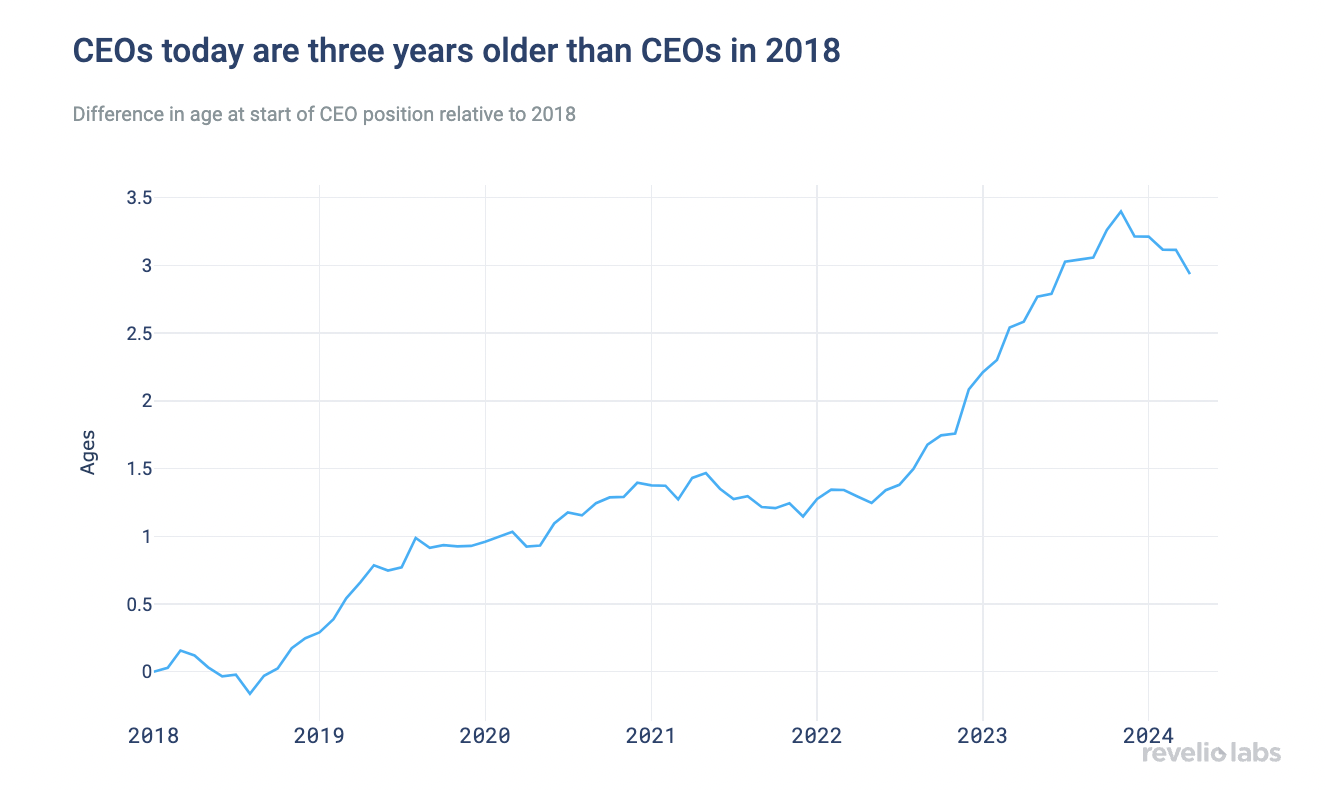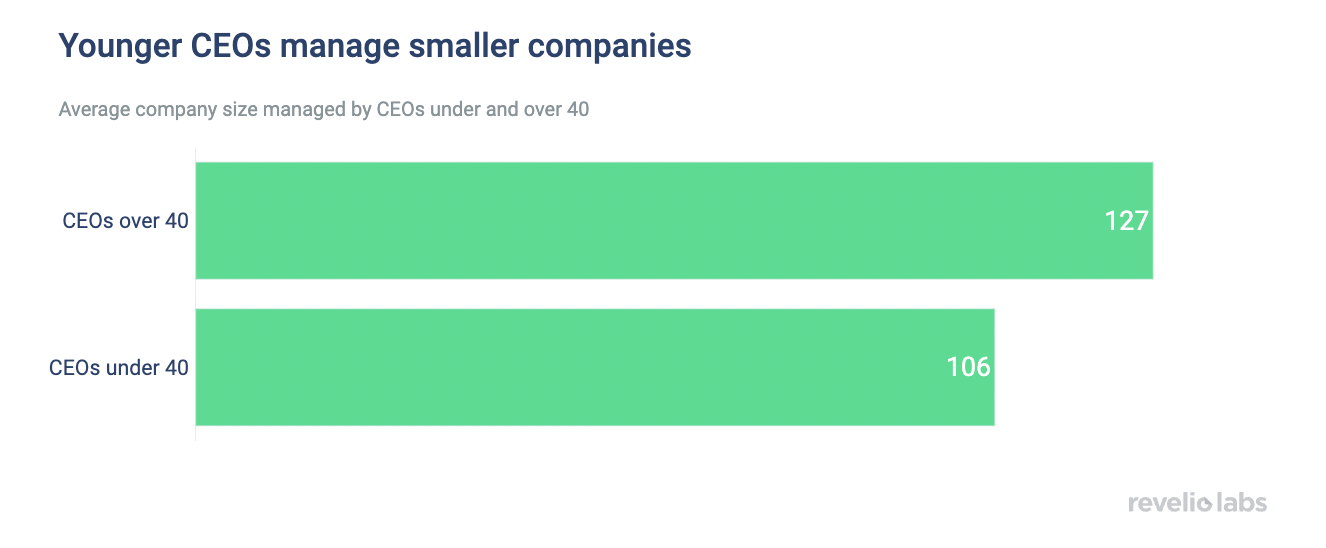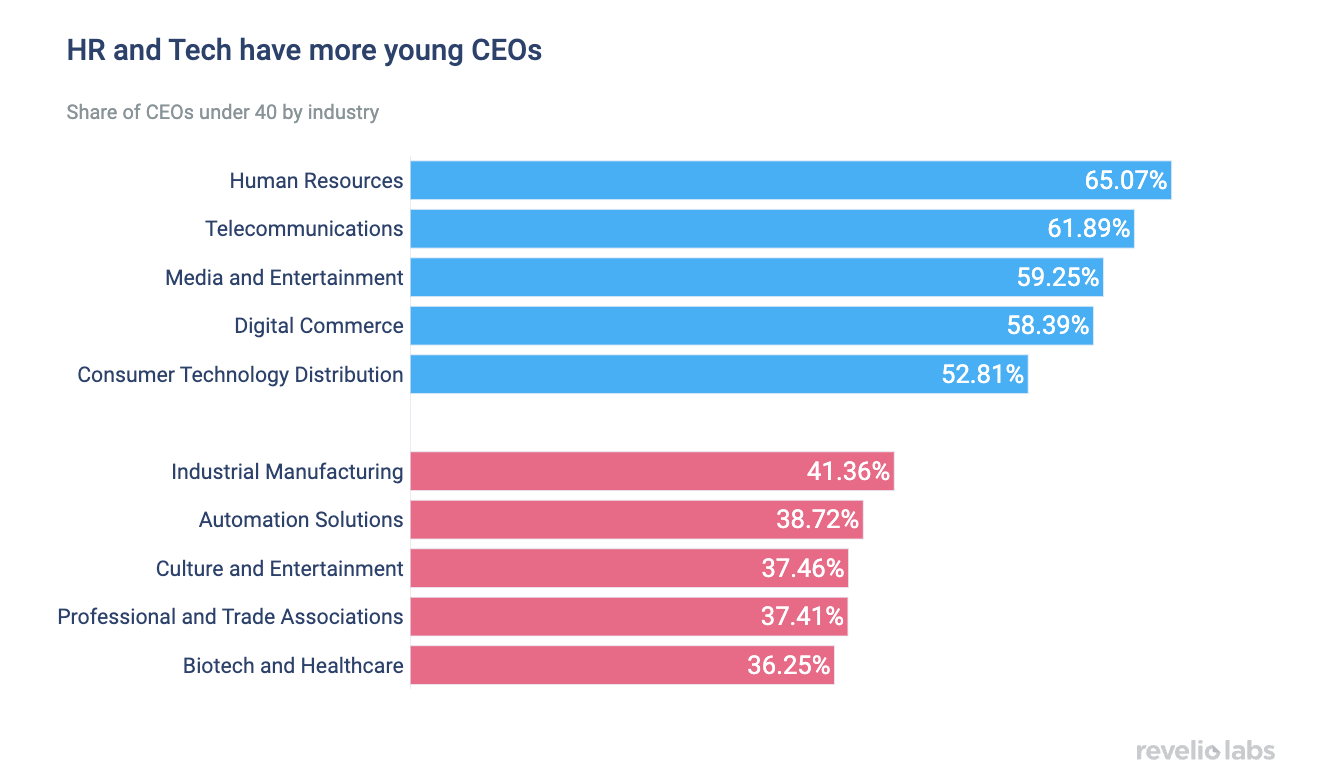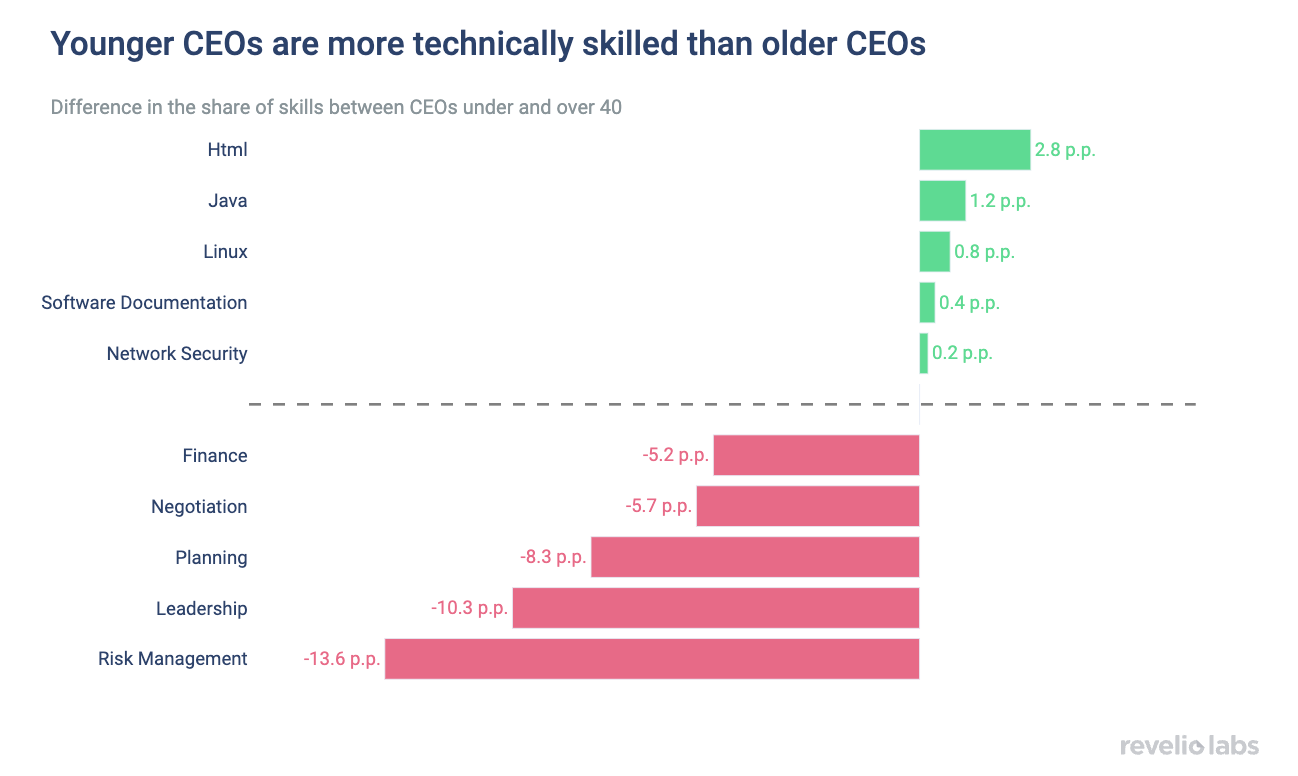Too Old To Lead? CEO Age Is on the Rise
Amid economic uncertainty, boards are going for more experience in their CEO picks

The average age of new CEOs has increased by 3 years since 2018.
Younger CEOs are more likely to manage smaller, agile companies where innovation and rapid decision-making are crucial, while older CEOs typically lead larger, more established firms.
Younger CEOs possess more technical skills related to modern technologies, while older CEOs excel in terms of soft skills and management expertise.
Age is currently at the forefront of debates in U.S. politics, but this discussion on the qualities of leaders from different generations extends far beyond the political realm. In the corporate world, too, the age of company CEOs is a topic of significant relevance. Some organizations and historical moments may call for young upstarts with fresh perspectives, while others may benefit from the wisdom and experience that come with age. Regardless of the scenario, a CEO's age and experience can profoundly impact a company’s strategy, culture, and performance. For stakeholders, investors, and anyone interested in the future of business leadership, understanding these dynamics is crucial. This week, we shed light on the latest trends in CEO age, examining the characteristics of companies that target younger CEOs and exploring the evolving skill sets that define effective leadership in today’s complex market.
Our analysis of CEOs of companies with at least 20 employees shows a notable trend: The average age of CEOs is increasing, with the average age of CEOs at the beginning of their job tenure being 3 years older in 2024 than 2018. This increase, especially starting in 2022, suggests that companies are favoring older, more experienced leaders over younger ones. The shift might reflect a preference for the stability and extensive knowledge that seasoned leaders bring to the complex and rapidly evolving business landscape. As the labor market went through significant changes during the Great Resignation, it called for skilled and experienced management to address the challenges of high turnover, worker shortages, and shifting employee expectations.


Furthermore, our workforce data indicates that younger CEOs tend to manage smaller companies: On average, CEOs under 40 manage 106 employees, 21 less than their older counterparts. This trend may reflect the opportunities younger leaders have to make their mark in more agile, less hierarchical environments where innovation and rapid decision-making are key. These smaller companies, often in growth phases, may benefit from the fresh perspectives and adaptability that younger CEOs provide, balancing the experience of older CEOs who typically helm larger, more established firms.


Sign up for our newsletter
Our weekly data driven newsletter provides in-depth analysis of workforce trends and news, delivered straight to your inbox!
This intuition is confirmed by analyzing young CEO prevalence by industry. Younger CEOs are more prevalent in fast-paced, innovation-driven industries, where fresh perspectives and adaptability are highly valued. Conversely, in industries such as biotech and healthcare, CEOs under 40 are notably fewer. This may be due to the technical and experiential demands of these sectors, where extensive industry knowledge and experience are critical.


Finally, we use our workforce data to understand the skill sets that CEOs in different age groups bring to the table. Younger CEOs typically possess more software/high-tech related technical skills, reflecting their recent entry into the workforce and exposure to modern technologies and methodologies. Their expertise in these areas can lead to more agile and forward-thinking strategies that can capitalize on the latest technologies. On the other hand, older CEOs exhibit stronger soft skills, management acumen, and business-related expertise, underscoring their strength in effectively managing teams and optimizing business processes. This divergence in skill sets underscores the complementary strengths that different age groups bring to leadership.


As companies navigate the complexities of modern business, the selection of CEOs of different generations reflects their specific needs and strategic goals. Younger CEOs can bring technical skills and knowledge of the latest innovations, while older CEOs can bring seasoned experience in management, organizational change and strategic thinking. The evolving landscape of CEO demographics highlights the importance of matching leadership qualities with organizational needs to foster resilient and dynamic companies.

